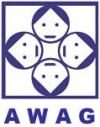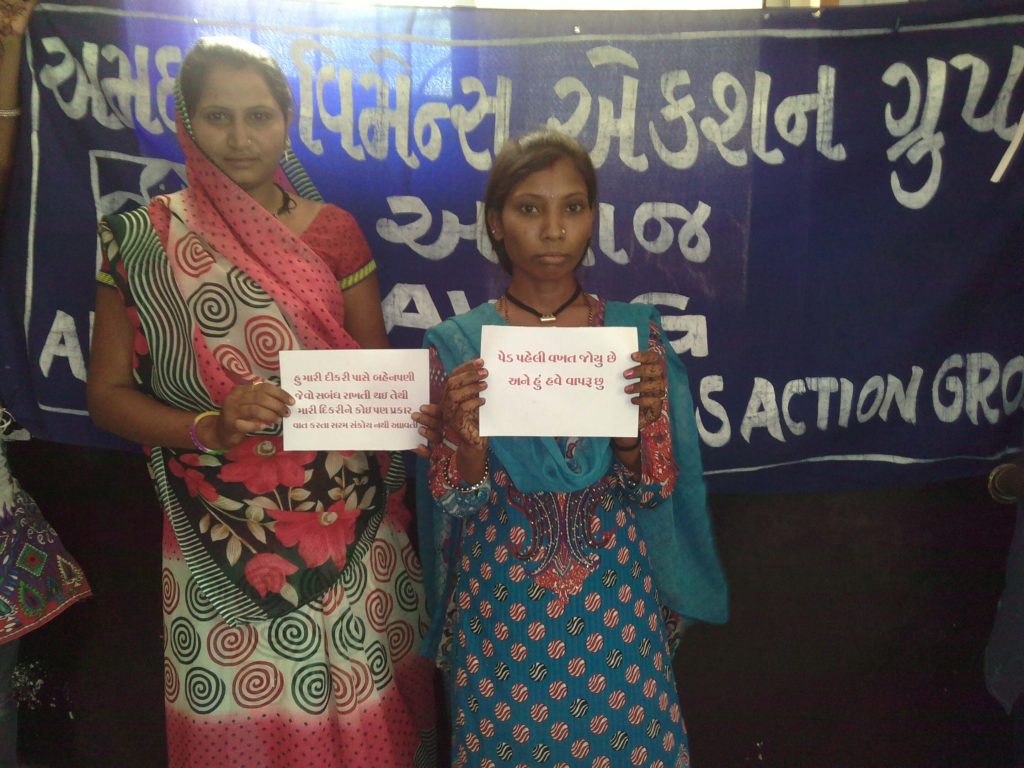Menstrual health and sanitation in India is a huge problem. 88% of women and girls do not have access to sanitary pads. 23% of adolescent girls drop out of school when they start menstruating and 85% of them are left housebound. Due to lack of awareness and affordability women used sand, ash, rags or dirty cloth instead of sanitary pads, leading to blistering, soreness, infections and long-term health issues.
As part of our project ‘Training 130 women youth health leaders in Gujarat’, Ahmedabad Women’ Action Group undertook the task to propagate the importance of menstrual hygiene and the use of sanitary pads in areas of Radhanpur and Patan.
Voices from the Field
-
“I am Leelaben from Village Kanigam in Patan block of Patan District, Gujarat. Initially I was embarrassed to participate in this meeting, but after attending the meeting my knowledge and confidence has increased. Earlier, we used cloth rags/pieces for menstrual protection and have nether worn panties nor have we used sanitary napkins. Our daughters use sanitary napkins. Now we too have realized the importance of using of sanitary napkins. We experience a number of problems such as irregular menstruation, prolonged menstruation, infertility and body heaviness before menstruation. The meeting helped us to cope with these situations. We will put in efforts to break barriers and will start interacting with our daughters in this matter so as to create a mutual bonding.
Such meetings are very enlightening and must be conducted regularly. We will ensure that more and more women attend these meetings.” - “I am Pravinaben from Village Borsan in Patan block of Patan District, Gujarat. I am currently employed as an ASHA Worker in my village. The team of AWAG conducted a meeting on Women’s Menstrual Health Awareness and Sanitation in my village. It is here that I realized that there was a lack of personal hygiene and knowledge about the use of sanitary napkins and underwear among a large number of women.
The knowledge along with the sanitary napkins that are made available at a subsidized rate by AWAG, prompted me to interact and convince the village women to adopt hygienic practices and to start using sanitary napkins for menstrual protection.
This effort along with the knowledge-support provided by AWAG has resulted in a positive change in terms of bringing about awareness and embracing hygienic measures through use of sanitary napkins, among the village women.”

